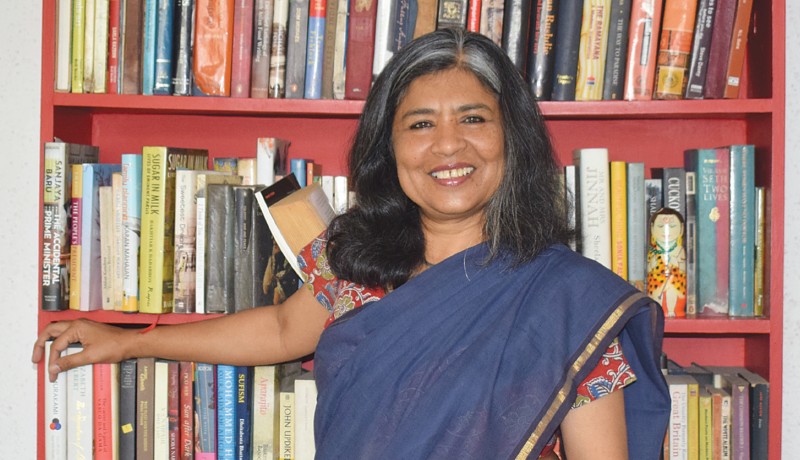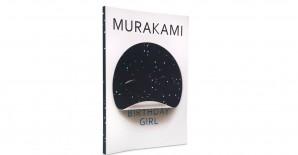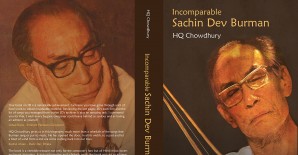
Etcetera

Love is not easy, more so when those involved defy social norms. Mr And Mrs Jinnah: The Marriage That Shook India (Penguin Random House; ₹ 699; 421 pages) authored by Sheela Reddy is one such tale that details the personal tribulations of a greatly misunderstood historic figure. For better or worse, chroniclers and biographers of Mohammad Ali Jinnah have drawn more on a not-so-charming and vehemently obstinate Muslim leader responsible for the creation of Pakistan. Reddy’s thoroughly researched book sheds light on another Jinnah: a 40 yearold who fell in love with an under-16 Ruttie Petit.
The balanced treatment of the subject matter and authentic character portrayals, combined with the first-time use of source material, which includes never-before-seen personal correspondence, highlight the author’s talent as a seasoned journalist with 35 years of fact-finding experience. A former books editor at Outlook magazine, the 65 year-old has an interest across disciplines, including politics, history, culture and literature. In an email interview with Suparna-Saraswati Puri, the Delhi-based author talks about the making of the book, the man behind the myth, and her own zest for life.
Excerpts from the interview:
How was the book Mr And Mrs Jinnah born?
As someone curious about our recent history and the persons who shaped it, I wanted to find out more about that great arch-rival of our founding fathers. The more I read about Jinnah, the more intrigued I became about his personal life, especially his marriage to this young Parsi girl. It became a challenge to try and uncover everything about them. And even before I knew it, I was hooked!
What was the contribution of the late Padmaja Naidu to the book?
Padmaja Naidu was the elder daughter of Sarojini Naidu, the second of her four children. She was the last surviving member of the very modern and cosmopolitan Naidu family, all four siblings having died single and childless. Although Padmaja was from Hyderabad like me, I had never met her personally. I knew very little about her except that she was a close friend of Jawaharlal Nehru. It was only when I started researching the Jinnahs that I discovered the vast correspondence she had bequeathed to the Nehru Memorial Museum and Library (NMML). This contained a large cache of letters written to her by Jinnah’s wife and the entire correspondence between the brilliant, eccentric and widely-travelled Naidu family, running into scores and scores of files. These letters shed interesting light on Jinnah, his wife, their marriage and the politics of the freedom struggle. They were invaluable for my research. I owe the book almost entirely to Naidu’s loving and systematic preservation of her family’s huge correspondence with each other and those associated with the freedom struggle.
How different was the experience of writing this book compared to your book on the Emergency?
My first book, Why I Supported the Emergency: Essays and Profiles by Khushwant Singh, was not really my book. I was only the editor. My role was to pick from the reams of columns Singh had written to include in the book, sometimes stringing three or four of them into a single essay because they were far too short to go as individual pieces. The introduction, which was longer than some of Singh’s own essays, was my only original contribution. And as that did not take me longer than a couple of days to write, it does not compare at all with the experience of writing Mr And Mrs Jinnah, which took me all of four years to write, making me feel like I would never reach the end, if there ever was going to be an end to whatever I was doing.
Who kept you motivated during that period?
The biggest inspiration was Vinod Mehta, my editor at Outlook. He cautioned me not to be in a hurry to write the book without researching it thoroughly. “It is your first book. Don’t cut corners,” he said, encouraging me to ignore the very tight deadline I had given myself for writing the book and ignore the publishers whenever they got impatient. I also felt I had to meet the expectations of my other mentor Khushwant Singh, whose lifelong lesson was that it was possible to be both readable as well as serious without sacrificing facts at the altar of readability. The other motivator was my family, where I had the reputation—quite undeservedly, I always felt—of not finishing any project I undertook. So, to my mind the book became a marathon race that I had set myself to run and now had to reach the finishing line no matter how overwhelmed and exhausted I felt because it was my izzat ka sawal!
What has been the takeaway for you?
I learnt much from examining Jinnah and his wife closely and trying to get under their skin. I realised that to put one’s feelings under such tight control as Jinnah did usually leads to disaster, both for oneself and others. Another lesson was that women who love too much, like Ruttie, end up doing a great disservice to themselves and the person they claim to love.
Were there any surprises while researching on Pakistan?
I was surprised how little even Pakistanis knew about Jinnah’s personal life. There were so many roads and universities named after him in every city, but no attempt to understand the man behind the myth.
Given the historical narrative of India and Pakistan as well as the political distrust between the nations, what can the book hope to achieve?
I am not egotistical enough to believe that my book can change the way people think, let alone an entire nation, and indeed that was never the intention behind writing the book. But, yes, I do hope the reader will come away with a better understanding of a man who is either seen as an arch-villain or demigod and the circumstances he was up against, and the tragedy of it all.
What are your leisurely pursuits?
So many things! I like spotting birds, trees and butterflies, although I am only beginning to distinguish the different kinds. I like walking, heart-to-heart conversations, shopping in local markets, learning about diverse subjects, attending talks, watching films from around the world, Zen Buddhism, and the art of interpreting dreams, among others. I have just been through a short-lived passion for Chhau dance and another phase of Haiku poetry. I also enjoy reading, writing and meeting friends, cooking, mooching around the house, and spending time with my family.
Are there plans for another book?
God knows! Before I wrote this book, I used to think we choose the books we write, deliberating among various subjects for the right theme. Now I know that it’s the story that grabs hold of one, never letting go of you until you tell it the way it wants to be told. It’s like being possessed!
Photo courtesy: Sheela Reddy Featured in Harmony — Celebrate Age Magazine July 2017
you may also like to read
-
Cracking the longevity code
Small yet impactful choices can be game-changers, writes Srirekha Pillai At 102, there’s no stopping Chandigarh-based Man Kaur, the world’s….
-
Home, not alone
While a regulatory framework is vital for senior-care facilities, the need of the hour is to develop an ecosystem to….
-
Birthday Girl
Published in a special edition to honour Japanese master storyteller Haruki Murakami’s 70th birthday, Birthday Girl (Penguin; Rs 100; 42….
-
A huge treat for music lovers
Published as the revised and updated second edition, Incomparable Sachin Dev Burman (Blue Pencil; Rs. 599; 470 pages) the authoritative….







